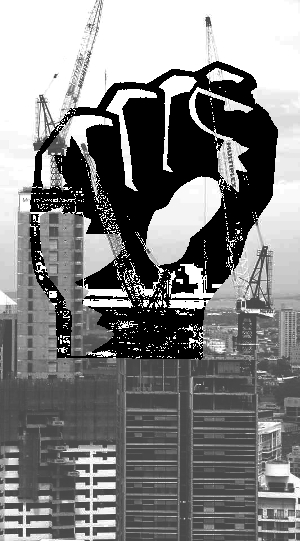Ex-union man wants CFMEU brought into line
 A former union boss has backed the return of the Australian Building and Construction Commission (ABCC), saying certain unions must be “brought to heel’’.
A former union boss has backed the return of the Australian Building and Construction Commission (ABCC), saying certain unions must be “brought to heel’’.
Former ACTU president Martin Ferguson says the actions of some parts of the CFMEU needed to be policed.
He compared the outspoken union to the outlawed Builders Labourers Federation (BLF).
The BLF was forced to de-register by the Cain Labor government in Victoria, backed by the Hawke Labor government, and Mr Ferguson said it is worth remembering that not all unions act in favour of the labour movement.
“Unfortunately, the manner in which the BLF conducted themselves is now rife within branches of the CFMEU,” he told news Corp reporters.
“And in my opinion the CFMEU should be brought to heel and required to conduct themselves in a fair and reasonable way.”
Ferguson says the CFMEU, “especially the Victorian, Queensland and WA branches of the construction union, have brought this on themselves”.
“It is the manner in which they conduct themselves.
“And I think for the sake of the industry and the need to attract investment in Australia, especially in this very challenging economic time, we need a policeman on the beat to bring a sense of stability and decency to the building industry,” he said.
Mr Ferguson – resources minister in the Rudd/Gillard government – says the watchdog role of the Australian Building and Construction Commission could clean up rogue elements of the CFMEU as an alternative to deregistration.
“My position is one of consistency as a cabinet minister and, prior to that, as a shadow minister. I supported the Australian Building and Construction Commission,” he said.
The comments come just day after Fair Work Building and Construction director Nigel Hadgkiss warned about increasing lawlessness and rogue players in the industry.
Hadgkiss says 75 CFMEU officials are currently before the courts, facing a total of 403 alleged breaches of workplace law.
At the same time, parliamentarians are about to make a crucial vote on the reinstatement of the ABCC, which would replace the Fair Work Building and Construction agency.
Mr Hagdkiss wants to ensure that the watchdog’s compulsory powers – the ability to compel witnesses to attend hearings and provide information – are moved over to the ABCC.
“There is no doubt that the compulsory powers which we and other federal government agencies have are critical to doing our job of trying to uphold the law on building and construction sites in Australia,” Mr Hadgkiss told The Australian.
“Reports that we drag people off the street and interrogate them are absolute nonsense.
“The powers are largely used to protect whistleblowers who want to give us evidence but are terrified of retribution,” he said.
Australian Industry Group chief executive Innes Willox said that the ABCC must take over the compulsory powers if the CFMEU is to be controlled.
“Prior to the powers being implemented in June 2005, the CFMEU adopted a blanket policy of its officers, staff and delegates refusing to be interviewed by the regulator, which frustrated many investigations into unlawful conduct,” he said.
“The unions’ oft-repeated assertions that the examination powers are ‘draconian’ are nonsense.”
A vote on the ABCC legislation is expected this week.







 Print
Print